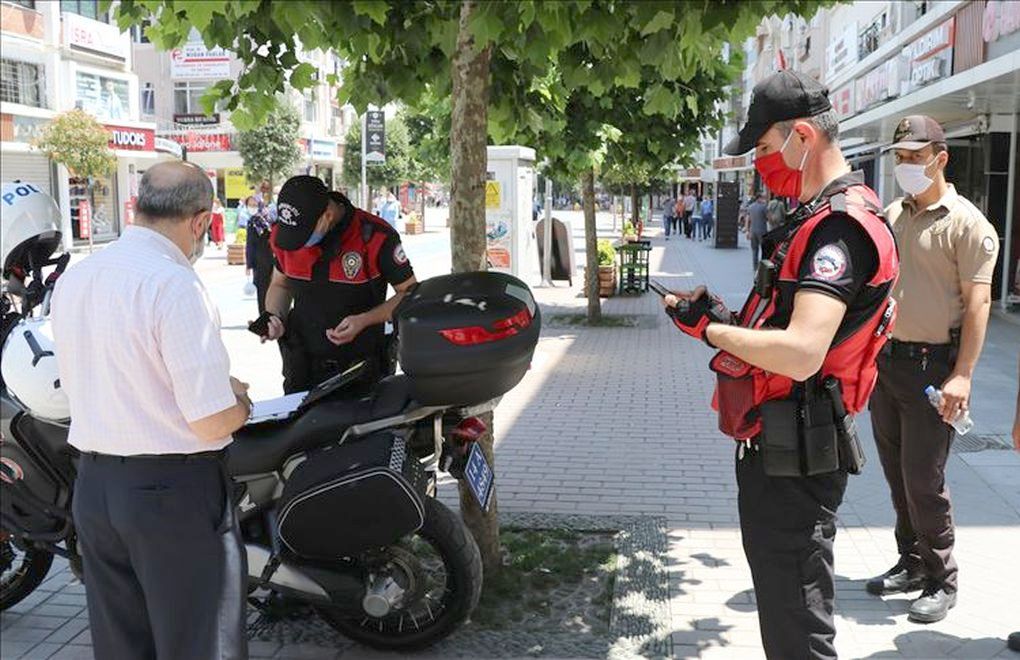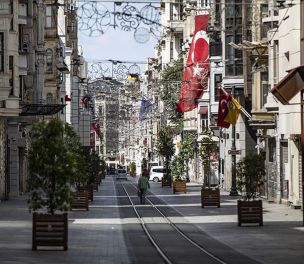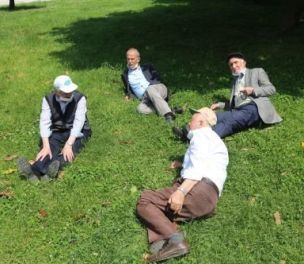Photo: AA/File
Click to read the article in Turkish
The Human Rights Association (İHD) has released a report examining the legality of the measures taken by the government due to the coronavirus pandemic.
"As stated in international conventions that were also signed by Turkey, all measures interfering with fundamental rights and freedoms must have a legal basis," it said, citing Article 7 of the European Convention on Human Rights and Article 15 of the UN International Covenant on Civil and Political Rights.
It said that the measures should be in accordance with the principle of legality and Article 15 of the Constitution on the suspension of the exercise of fundamental rights and freedoms.
The association also said that it aimed to contribute to the prevention of arbitrary restrictions of rights and freedoms by releasing the report.
"A de facto state of emergency"
"Most of the measures restricting basic rights and freedoms were implemented with circulars. These circulars have not been published in the Official Gazette, only included in the Ministry of Interior's website as 'news'," the report notes.
The Covid-19 curfews that were partially implemented between March and July also lacked a legal basis as the government should declare a state of emergency to impose curfews, said the İHD, citing Article 15 of the Constitution.
"The implementation of curfews without the declaration of a state of emergency created a de facto state of emergency," it says.
What does the Constitution say?IV. Suspension of the exercise of fundamental rights and freedoms ARTICLE 15- (As amended on April 16, 2017; Act No. 6771) In times of war, mobilization, a state of emergency, the exercise of fundamental rights and freedoms may be partially or entirely suspended, or measures derogating the guarantees embodied in the Constitution may be taken to the extent required by the exigencies of the situation, as long as obligations under international law are not violated. (As amended on May 7, 2004; Act No. 5170) Even under the circumstances indicated in the first paragraph, the individual's right to life, the integrity of his/her corporeal and spiritual existence shall be inviolable except where death occurs through acts in conformity with law of war; no one shall be compelled to reveal his/her religion, conscience, thought or opinion, nor be accused on account of them; offenses and penalties shall not be made retroactive; nor shall anyone be held guilty until so proven by a court ruling. |
"While it is stipulated in the Constitution that fundamental rights and freedoms can be restricted only by law, making regulations not by law but by the authority given to governors or circulars means the exercise of the legislative power by the executive power, which also contradicts the principle of separation of powers, which is one of the indispensable principles of the state of law.
"According to Article 7 of the Constitution, the legislative power is vested in the Grand National Assembly of Turkey (TBMM) and this authority cannot be delegated."
Monetary fines
The government has imposed monetary fines against those who don't comply with the measures taken due to the pandemic, such as wearing masks, curfews and physical distancing, the report notes.
Fines of 392 to 3,180 (1 lira = 7.36 USD) lira are imposed in accordance with Article 282 of the Law on Public Hygiene and Article 32 of Misdemeanor Law. authorities also enforce Article 195 of the Turkish Penal Code when needed.
"As Covid-19 measures are mostly devoid of a legal basis, it is clearly against the principle of legality to impose fines according to this law for any action during the pandemic that the administration defines as a misdemeanor. It should be admitted that the administration's authority to define misdemeanors is not unlimited.
"On the contrary, the emphasis on lawfulness in Article 32 should be considered as a guarantee of the principle of legality and preventing arbitrary practices." (EKN/VK)






-132.jpg)


